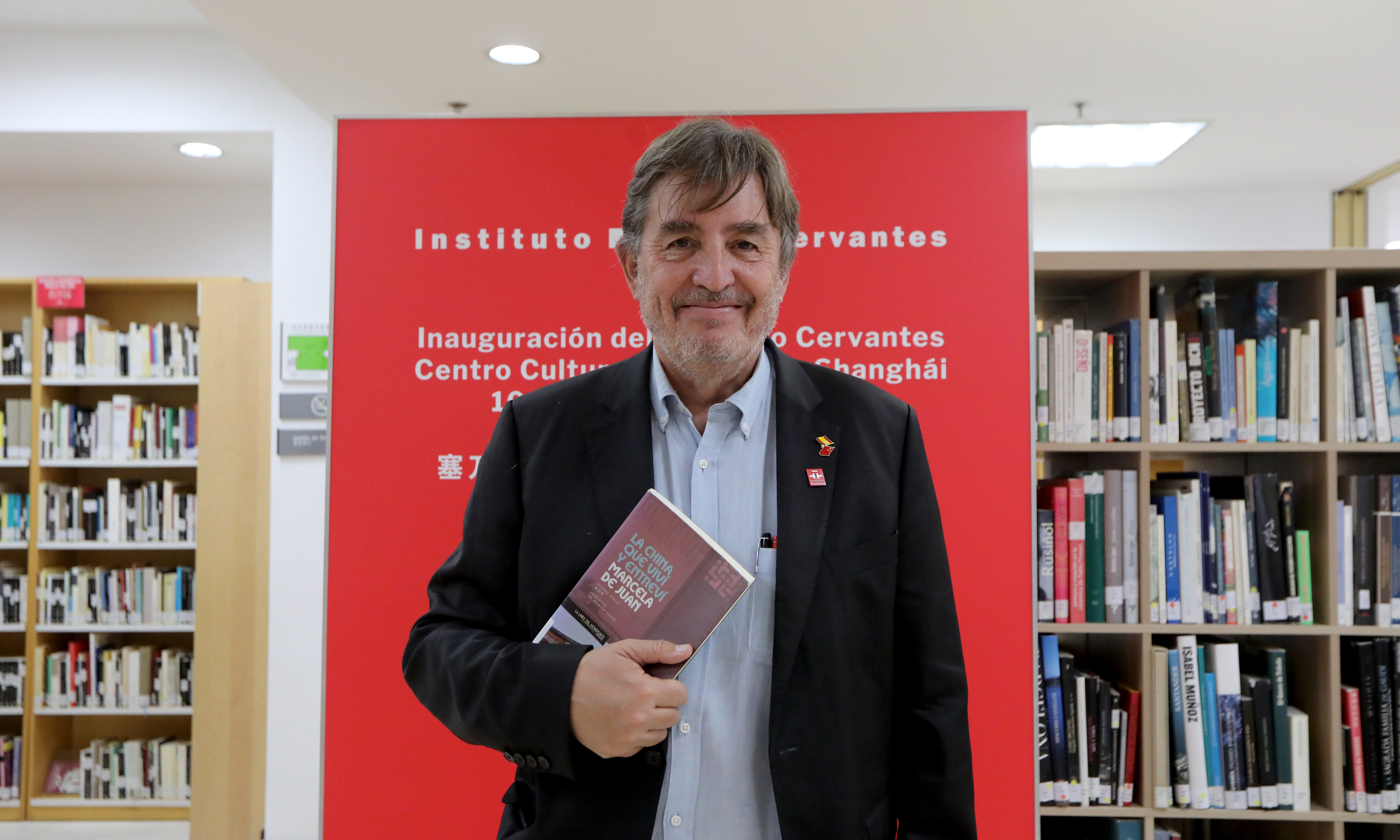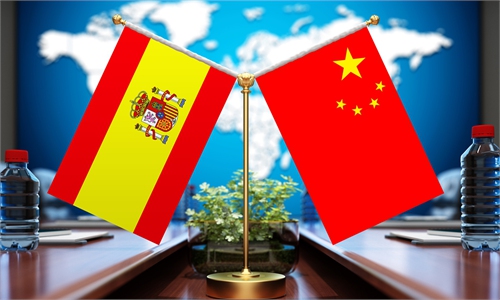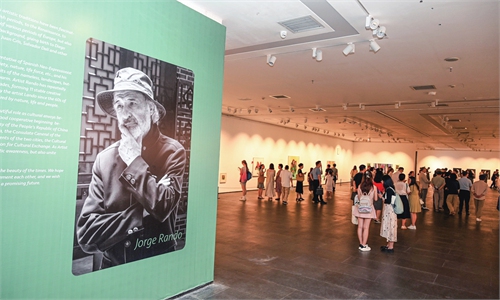IN-DEPTH / DIPLOMATIC CHANNEL
Cultural and linguistic exchange promotes mutual understanding and true multilateralism, says Cervantes Institute director

Luis García Montero, director of the Cervantes Institute. (Photo: Chen Xia/GT)
The Cervantes Institute opened its second branch in Shanghai on Tuesday. This is the Institute’s second branch in China, following the establishment of the Beijing branch in 2006.
Spanish Prime Minister Pedro Sanchez attended the opening ceremony of the Cervantes Institute in Shanghai on Tuesday amid his ongoing visit to China. In a speech delivered at the ceremony, Sanchez noted that language and culture are the most useful link to unite civilizations and friendly countries like Spain and China.
The opening of the Cervantes Institute in Shanghai marks a new milestone in the ongoing efforts by Spain and China to promote cultural exchange, said Luis García Montero, director of the Cervantes Institute, in an exclusive interview with the Global Times on Tuesday during his visit to China specifically for the occasion.
“The establishment of the Institute’s Shanghai branch shows the great importance that both the Chinese and Spanish governments and peoples attach to the friendly relations between the two countries,” he said in Spanish.
The Cervantes Institute, or Instituto Cervantes in Spanish, is a public institution created by Spain in 1991 to globally promote the teaching, study, and use of Spanish, as well as to contribute to the dissemination of pan-Hispanic culture abroad. The newly opened Cervantes Institute in Shanghai has been transformed from the former Cervantes Library with the support of Chinese and Spanish governments, according to the Institute.
Montero noted that the transition from a library to a full-fledged institute signifies a larger budget and an expanded teaching staff for Spanish, which will provide greater support to Spanish learners and scholars in China.
He mentioned that approximately 60,000 Chinese students are studying Spanish, and the number of enthusiasts learning Spanish language in China through informal education is growing. “The situation is similar in Spain, as more and more people there want to learn Chinese,” he told the Global Times, noting that “that is a result of China’s increasingly important role and higher status on the international stage.”
In terms of the number of native speakers, Chinese and Spanish are the first and second most spoken languages in the world, Montero said. “It’s a very good thing if the two groups of Chinese and Spanish speakers can better understand each other, share their cultures, and promote two-way communication together.”
Montero praised the true multilateralism that China has been advocating through the United Nations, describing it as a good concept for avoiding hegemony and promoting mutual understanding. “I believe in the powerful impetus of cultures and languages in enhancing mutual understanding, and I believe that the joint efforts made by our governments and cultural sectors can ultimately realize true multilateralism,” he noted.




